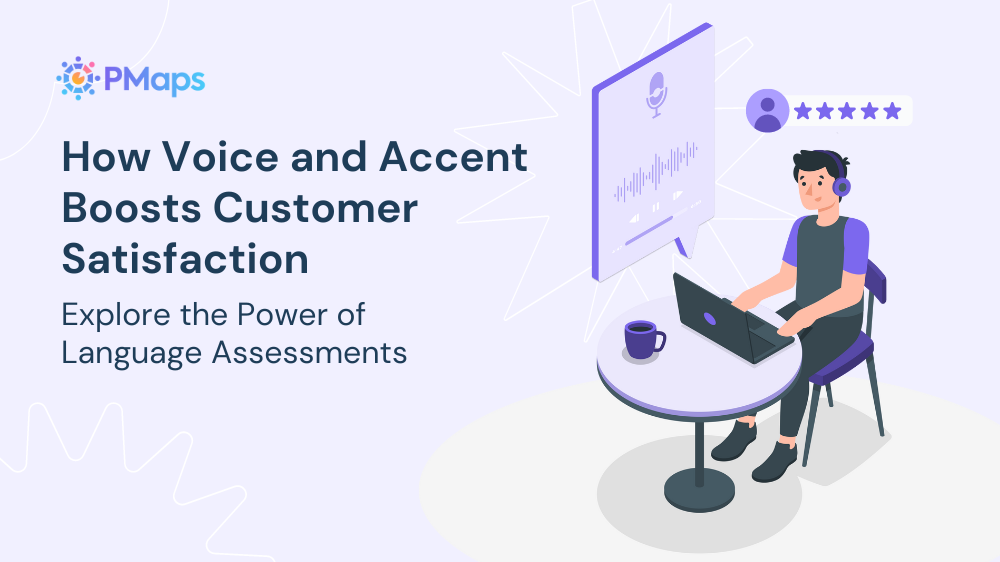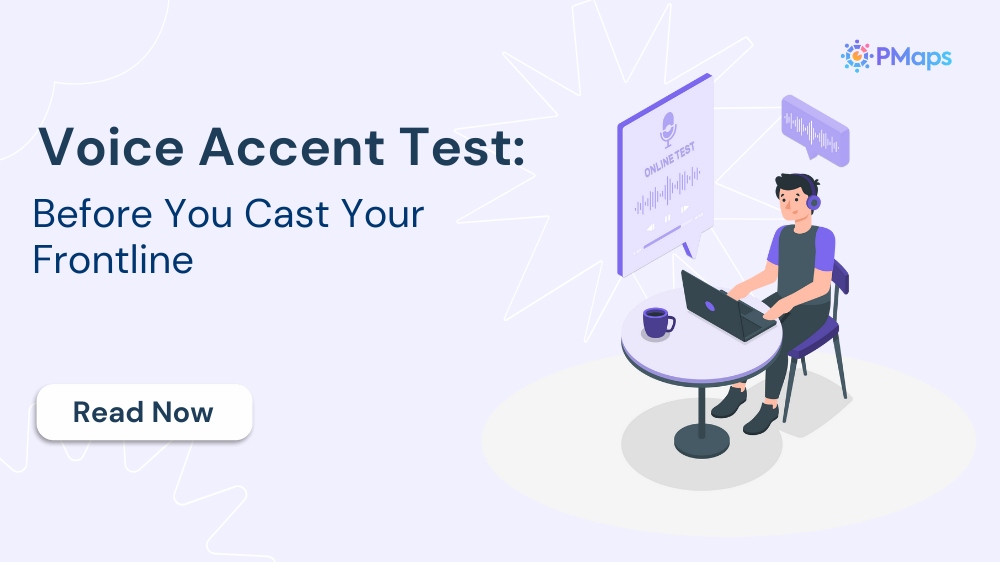
How Voice and Accent Boosts Customer Satisfaction: Explore the Power of Language Assessments
Are you searching for ways to enhance customer satisfaction in your organization? Unlock the power of language assessments, hire language-proficient candidates, and revolutionize your customer experience. Download our comprehensive case study to delve into the findings and insights that highlight the impact of language proficiency on customer satisfaction. Explore how selecting candidates with strong language skills can lead to improved communication, enhanced problem-solving, and greater customer loyalty. Don't miss out on this valuable resource—click the button below to download and gain valuable insights to elevate your customer satisfaction strategy.
The Organization
A leading provider of digital transformation and consulting services in the ITES space has been a strategic partner of a telecommunications company for several years. The company provides a range of services to the telecommunications company including support for 4G and 5G network rollout, customer experience management, IT infrastructure management, automation, AI, and analytics.
The goal of the partnership is to help the Telecom company operate more efficiently, improve customer experience, and stay competitive in the industry. The partnership also helps the digital transformation company to expand its services in the ITES industry.
The Telecom Partner has been using PMaps Psychometric Assessment as their mass hiring solution since 2016, continuously leveraging its capabilities to achieve their hiring goals and improve customer satisfaction.
The Challenge
The ITES company encountered a range of significant challenges within their hiring process, impeding their ability to hire the right-fit executives and deliver exceptional global customer satisfaction. The following problems were identified as key obstacles:
Low Customer Satisfaction:
The organization faced difficulties in meeting customer expectations, resulting in lower levels of customer satisfaction. This issue could be attributed to various factors, such as traditional and lengthy hiring practices that led to underqualified or ill-suited customer service executives.
High Attrition Rate:
The ITES company experienced a high turnover rate among its employees. This high attrition rate posed challenges in terms of maintaining stability within the organization, preserving knowledge, and ensuring consistent service quality for customers.
Inadequate Candidate Filtering:
The organization struggled with filtering out poor-performing candidates during the hiring process. Insufficient screening and evaluation methods led to the recruitment of individuals who did not possess the necessary skills or did not fit the company's culture, resulting in underperforming employees.
Poor Conflict Resolution and Problem-Solving Skills:
The ITES company encountered issues with conflict resolution and problem-solving skills among their customer service executives. This deficiency hindered the effective resolution of customer complaints, strained relationships with partners, and decreased overall productivity.
Weak Communication Skills:
The organization faced challenges related to weak communication skills among their employees. Ineffective communication led to miscommunication, misunderstandings, and inefficiencies in conveying important information to customers, partners, or within the organization itself.
Lack of Customer Focus:
The ITES company struggled with maintaining a strong customer-centric approach across their workforce. This issue manifested in a lack of responsiveness to customer needs, an inability to anticipate and address customer concerns, and a general disregard for customer satisfaction as a top priority.
High Turnover Cost:
The organization incurred significant financial costs due to the high turnover rate among their employees. Constantly recruiting and training new staff members not only imposed recruitment expenses but also disrupted operational continuity and productivity.
Need for Right-Fit Executives:
The ITES company faced challenges in identifying and hiring executives who were the right fit for the organization. The lack of appropriate screening and selection methods resulted in executives who did not align well with the company's values, objectives, or industry requirements.
These problems collectively hindered the organization's ability to hire and retain top-performing executives, negatively impacting customer satisfaction, operational efficiency, and overall success. It was imperative for the ITES company to address these issues to improve their hiring process, reduce turnover costs, enhance customer satisfaction, and secure individuals who were the right fit for the organization
The Process
Conducted Focus Group Discussions:
Focus group discussions were conducted with key stakeholders, managers, and employees to understand the organization's weak areas and pain points in the hiring process. This step provided valuable insights into the specific challenges faced by the ITES company.
Proposed Test Design – PMaps Customer Focus Assessments:
PMaps Customer Focus Assessments consisted of a combination of behavioral, cognitive, and skill test sections to thoroughly evaluate candidates. It involved the inclusion of domain-specific questions to assess candidates' knowledge and expertise in the ITES industry.
In order to measure candidates' customer service skills, the PMaps' signature Customer Service Assessment was introduced as a crucial component of the evaluation process. This assessment specifically focused on evaluating candidates' capabilities in handling inquiries, resolving conflicts, and delivering exceptional service to customers.
Recognizing the importance of effective communication, the PMaps eVA – Voice and Accent assessment was incorporated. This assessment not only evaluated the language proficiency of candidates but also measured their solutioning ability, ensuring that they could effectively communicate as well as provide appropriate solutions to customers.
By integrating these assessments, the ITES company aimed to comprehensively evaluate candidates, taking into account their behavioral traits, cognitive abilities, domain-specific knowledge, customer service skills, and communication proficiency. This holistic approach enabled the organization to identify and select candidates who possessed the necessary skills, expertise, and qualities required for success in customer service roles.
Pilot Run to Establish Organizational Benchmarks and Develop Assessment Criteria:
As a proof of concept, a pilot run was conducted within the organization, evaluating the performance of high and low performers. This pilot run not only provided valuable insights into the benchmarks and criteria that distinguish top performers from underperformers but also built trust in the proposed solution. The results of the pilot run served as a foundation for developing the assessment criteria, ensuring a robust and effective evaluation process for future hiring endeavors.
Through this comprehensive assessment process, the ITES company aimed to identify candidates who possessed the necessary skills, knowledge, and behavioral traits to excel in customer service roles. By considering domain-specific expertise, cognitive abilities, and customer service skills, the organization made informed hiring decisions to select candidates who were the right fit for their culture and objectives.
The Solution
PMaps Customer Focus Assessments –
Test Design:
- Behavior: PMaps Customer Service Assessment
- Language Assessment – PMaps eVA – Voice and Accent Assessment
- Skill Assessment: CSE Domain, Attention to Detail, Listening and Typing
PMaps Customer Service Assessment
The PMaps Customer Service Assessment is a comprehensive evaluation tool consisting of 40 questions, including visual and audio-based situational judgment scenarios. It assesses candidates on key traits essential for delivering exceptional customer service.
Empathy: This trait measures the candidate's ability to understand and address a customer's queries and concerns by empathizing and placing themselves in the other person's shoes.
Presence of Mind: The assessment evaluates the candidate's quick thinking and problem-solving abilities, assessing their capacity to promptly respond to and resolve issues.
Emotional Control: This trait assesses the candidate's ability to maintain control over the display of emotions, ensuring that their expression is situationally appropriate and professional during customer interactions.
Conscientiousness: The assessment evaluates the candidate's dedication to meeting work deadlines, and also measures the punctuality, precision, and thoroughness in their work, ensuring reliable and high-quality service delivery.
Achievement Orientation: This trait assesses the candidate's drive to achieve accomplishments and targets, both for the organization's betterment and for personal growth.
PMaps eVA – Voice and Accent Assessment
The PMaps eVA – Voice and Accent (V&A) Assessment offered is a specialized, tailored test. Its primary objective is to evaluate the oral and written English-language skills of candidates, particularly in client-facing positions. The assessment thoroughly examines various elements of written and oral proficiency, such as tone, intonation, fluency, pronunciation, and speech clarity. By assessing these critical aspects, the Voice and Accent Assessment enables organizations to gauge candidates' language proficiency and ensure their suitability for roles that involve direct interaction with customers.
The PMaps eVA Assessment addresses key areas necessary for effective communication and customer service:
Solutioning: This evaluates the candidate's ability to understand customers' queries and respond appropriately with suitable solutions.
English Grammar: The assessment evaluates whether candidates have a strong command of English grammar, enabling them to establish effective communication with customers.
Pronunciation: It measures the candidate's ability to deliver comprehensible pronunciation that aligns with global standards, allowing them to effectively convey thoughts and information to customers.
Vocabulary: The vocabulary skills of candidates are evaluated to ensure that they possess a wide range of words and phrases for effective communication with customers.
Comprehension: This aspect assesses the candidate's quick association and response to customer needs, which is crucial for providing efficient support service.
Fluency: The assessment evaluates the candidate's flow of speech, pitch, tone, and clarity, which contribute to effective communication and customer understanding.
Skill Assessments
CSE Domain: The Customer Service Executive Domain Assessment is designed to evaluate a candidate's ability to understand varied company information and extract the relevant details to assist customers with their queries. This assessment specifically focuses on assessing candidates' domain knowledge and expertise related to the products, services, and policies offered by the company.
Attention to Detail: The Attention to Detail section in the assessment evaluates a candidate's ability to carefully observe and notice specific details in various scenarios or information provided. This section aims to assess the candidate's attentiveness, accuracy, and precision in identifying and capturing relevant information.
Listening: The Listening section in the assessment evaluates a candidate's ability to actively listen and comprehend information accurately. Effective listening is a crucial skill for customer service executives as it enables them to understand customer needs, concerns, and inquiries clearly, leading to improved communication and problem-solving.
Candidates are presented with audio-based scenarios, conversations, or customer interactions, where they are required to listen attentively and extract relevant information. They are assessed on their ability to understand and interpret the spoken content, identify key details, and comprehend the message conveyed by the speaker.
Typing: The Typing section in the assessment evaluates a candidate's typing skills and proficiency. In customer service roles, fast and accurate typing is essential for efficiently handling customer inquiries, documenting information, and providing timely responses.
Candidates are presented with typing exercises or tasks that measure their typing speed, accuracy, and overall typing ability. They are assessed on their proficiency in keyboarding, including factors such as typing speed and error rate.











